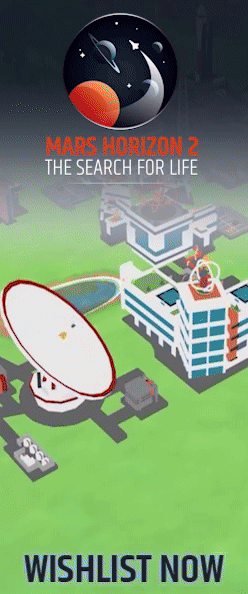Gamify Your PhD was a project conceived and produced by Auroch Digital for the Wellcome Trust. In this project the scientists will became the game designers. To show scientists how one might gamify science we assembled the team of MobilePie, Wired and the Wellcome Trust to create this guide to designing games (complete with mini-games):
Wired wrote a great article about the project:
The Wellcome Trust has launched an initiative -- called Gamify Your PhD -- to bring together researchers with developers in order to create games that explore the latest developments in biomedicine.
Researchers are invited to send their ideas about how their PhD research could be illustrated through a game. In order to inspire them, Mobile Pie (with the advice of Wired.co.uk editor Nate Lanxon) has created an interactive embeddable guide to basic gaming mechanics, featuring 16-bit minigames. These include a Darwin-inspired survival-of-the-fittest pigeon game, a Mendel genetics puzzle game, a game based on Asch's work on conformity and a Newton-targeting apple physics game.
Meanwhile, teams of three or four game developers are invited to apply to join a game-hack in London in September in order to bring the researchers' ideas to life. Each team must have all the necessary skills to create a prototype game in two days -- design, code, art and audio -- plus their own equipment. The best team will receive funding to develop their idea into a releasable game.
Where they quoted Auroch Digital's Tomas Rawlings:
The initiative is the brainchild of Wellcome Trust's gaming consultant Tomas Rawlings, who said: "Science and games are a natural fit, both are about the participant seeking to understand the rules that govern the world they find themselves within and achieving this by experiments such as trial-and-error. Gamify your PhD is an exciting twist and evolution of these areas."
Here is the official press release:
The Wellcome Trust invites researchers to gamify their PhDs
11 July 2012: An innovative new way of communicating science research launches today with Gamify your PhD, a project from the Wellcome Trust which brings together researchers and games developers to create new games exploring and explaining the latest developments in biomedicine.The Trust is inviting researchers to share ideas for games based on their PhD work in biomedical science or the medical humanities, and small teams of games developers to turn these ideas into addictive, challenging and educational games. Those selected will partner at a two day hack in which the games will be created.The best of these will receive funding to develop into a releasable game.To help inspire ideas and give researchers a flavour of what's possible a web-app http://www.wellcome.ac.uk/gamify, developed by Mobile Pie, has been commissioned, offering an interactive and fully embeddable guide to the nuts and bolts of mechanics and motivation that lie behind successful game design. The web-app also features sample 16bit mini games to illustrate the different elements of gaming, including a Darwin inspired survival of the fittest pigeon game, a Mendel genetics puzzle game, a game based on Asch's work on conformity, and a Newton-targeting apple game.Gamify your PhD is part of a wider commitment by the Wellcome Trust to using games and gaming culture as a means of engaging people with science. A range of awards schemes is open to developers interested in creating innovative, entertaining and accessible games based around biomedicine and medical history.Daniel Glaser, Head of Special Projects at the Wellcome Trust said: "The engaged researcher has lots to learn from gaming and game design can benefit hugely from the latest scientific advances. That's why the Wellcome Trust is throwing its weight behind this innovative interaction.
Today's brightest researchers understand that science does not take place in a vacuum and the best research can engage with the most popular culture. I'm very curious to find out what these teams will come up with."Tomas Rawlings, the Wellcome Trust's gaming consultant said: "Science and games are a natural fit, both are about the participant seeking to understand the rules that govern the world they find themselves within and achieving this by experiments such as trial-and-error. Gamify your PhD is an exciting twist and evolution of these areas."The deadline for applications from researchers and developers is 12 August, and the games hack will take place between the 3-4 September 2012. The resulting games will be made available online. All details about the scheme and the web-app guide to gaming can be found at www.wellcome.ac.uk/gamify
The project's twitter hashtag is #gamifyyourphd
So the event got lots of interest via twitter (you can see a sample here). Plus we've been getting some great press coverage pre-the actual jam of it including:





